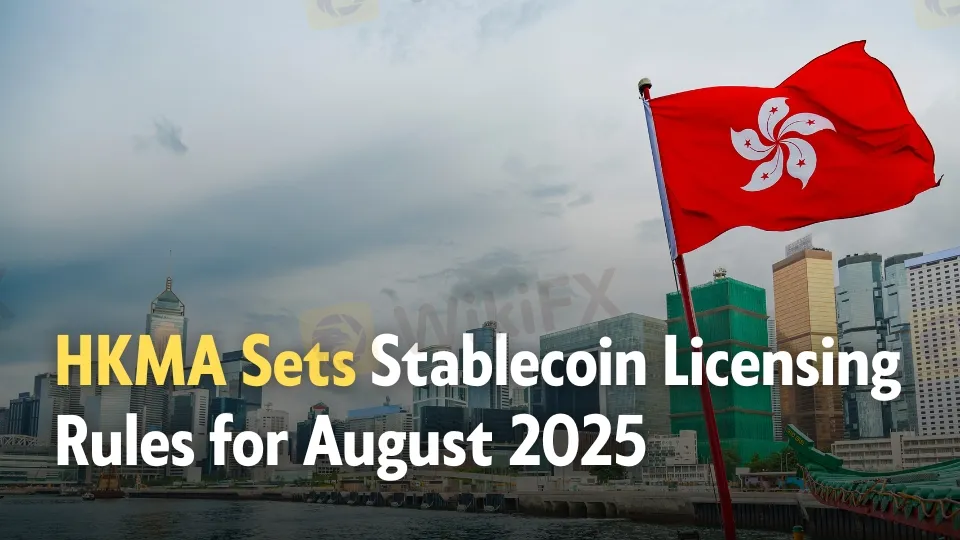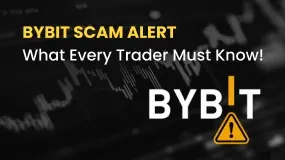简体中文
繁體中文
English
Pусский
日本語
ภาษาไทย
Tiếng Việt
Bahasa Indonesia
Español
हिन्दी
Filippiiniläinen
Français
Deutsch
Português
Türkçe
한국어
العربية
HKMA Launches Stablecoin Licensing Rules Ahead of August 2025 Deadline
Abstract:HKMA’s Stablecoins Ordinance and licensing guidelines take effect August 1, 2025, defining Hong Kong’s digital asset regulation landscape for stablecoin issuers.

Hong Kong is making waves in the digital finance world. The Hong Kong Monetary Authority just dropped the final blueprint for how stablecoin companies will need to operate, and it's a game-changer. Starting August 1, 2025, any business wanting to issue stablecoins in Hong Kong will need to play by a whole new set of rules.
Think of this as Hong Kong's way of saying “we're serious about digital money, but we're going to do it right.” The city has been watching stablecoins grow from a niche crypto product into something that powers billions of dollars in cross-border payments daily. Now they want to make sure this growth happens safely.
What's Actually Changing?
The new licensing system isn't just paperwork – it's a complete overhaul of how stablecoin businesses operate. Under the Stablecoins Ordinance Cap. 656, companies will need to prove they have enough capital, solid anti-money laundering systems, and proper consumer safeguards before they can even think about launching.
The HKMA has rolled out detailed supervision guidelines that read like a roadmap for responsible stablecoin operations. These aren't suggestions – they're requirements that touch everything from how companies handle customer funds to how they report suspicious transactions.
What makes this particularly interesting is the timing. The official documents hit the Government Gazette on August 1, which means the clock started ticking immediately. Companies have until September 30 to submit their licensing applications, though smart operators are already reaching out to regulators for early guidance.

The Application Rush is On
Here's where things get practical. If you're running a stablecoin operation or thinking about starting one in Hong Kong, August 31 is your key date for initial contact with regulators. Miss this window, and you might find yourself waiting much longer to get into the licensed club.
The HKMA has been surprisingly transparent about the whole process. They've published not just the rules, but also explanatory notes that break down exactly what companies need to do. There's even guidance for existing operators on how to transition into the new system without disrupting their business.
Why Fiat-Backed Stablecoins Get Special Attention
The focus on fiat-backed stablecoins makes perfect sense when you think about it. These are digital tokens supposedly backed by real dollars, euros, or other traditional currencies. If someone claims their digital coin is worth $1 because they hold $1 in a bank account, regulators want to make absolutely sure that's actually true.
But here's the catch – and it's a big one. Right now, exactly zero stablecoin licenses have been handed out. The HKMA has made it crystal clear that anyone claiming to be licensed or even claiming to be an applicant without proper documentation is breaking the law. We're talking criminal charges, not just regulatory slaps on the wrist.
The Compliance Reality Check
The new framework puts serious emphasis on risk management and disclosure practices. Companies need robust systems to detect money laundering, terrorist financing, and other financial crimes. This isn't just about checking boxes – it's about building operations that can withstand scrutiny from international regulators and financial intelligence units.
For businesses already operating in this space, the message is clear: verify everything. The HKMA plans to publish a public register of licensed issuers on their website, making it easy for anyone to check if a stablecoin company is actually legitimate. Using unlicensed stablecoins could expose both businesses and consumers to significant financial and legal risks.
What This Means for the Bigger Picture
Hong Kong's move represents something bigger than just local regulation. The city is positioning itself as a bridge between traditional finance and the digital asset world. By creating clear, comprehensive rules, they're trying to attract serious players while keeping out bad actors.
This regulatory framework could become a template for other jurisdictions wrestling with similar questions about stablecoin oversight. The balance between innovation and protection that Hong Kong is striking might influence how other financial centers approach digital asset regulation.
The August Deadline and Beyond
As August 2025 approaches, the stablecoin industry is watching Hong Kong closely. Companies that successfully navigate this licensing process will have a significant competitive advantage – they'll be able to operate with regulatory certainty in one of Asia's most important financial hubs.
For investors and users, this framework promises better protection and more transparency. For the industry as a whole, it represents a maturation from the wild west days of unregulated crypto into something that looks more like traditional financial services – but with all the speed and efficiency that made digital assets attractive in the first place.
The stakes are high, the timeline is tight, and the rules are now clear. Hong Kong has set the stage for what regulated stablecoin operations should look like, and the rest of the world is taking notes.
Download and install the WikiFX app to follow the latest news in the financial industry.

Disclaimer:
The views in this article only represent the author's personal views, and do not constitute investment advice on this platform. This platform does not guarantee the accuracy, completeness and timeliness of the information in the article, and will not be liable for any loss caused by the use of or reliance on the information in the article.
Read more

There’s a New Cryptocurrency-Focused Prop Trading Platform?
CoinProp recently launched a proprietary trading platform designed for cryptocurrency markets, providing access to more than 500 digital assets. Will this move reshape prop trading entirely, especially for crypto traders worldwide?

Binance Users Convert Crypto and Withdraw Instantly to Mastercard
Binance now lets users in Europe effortlessly convert crypto and instantly withdraw fiat to Mastercard using the new Buy & Sell service with seamless integration.

Philippine SEC Blocks Unregistered Crypto Exchanges ISPs Nationwide
Philippine SEC enforces new CASP Rules, prompting major ISPs to block access to unregistered crypto exchanges and raising concerns on internet censorship.

Bybit Scam Alert: What Every Trader Must Know!
The cryptocurrency trend is still growing and isn’t going away. More people are investing every day, hoping to profit from this fast-moving market. But opportunity comes with risk. If you want to start trading, make sure you choose a broker that is safe, licensed, and transparent. Remember, if you fall for the Scam brokers like Bybit, they could steal your money. Learn why Bybit is not a safe choice before you invest.
WikiFX Broker
Latest News
Datuk Seri Linked to RM8.4 Million Gold Investment Scam Under Police Probe
The Psychology Behind the Ascending Triangle Pattern in Forex
Charles Schwab Forex Review 2025: What Traders Should Know
The Global Inflation Outlook
What WikiFX Found When It Looked Into XS
ASIC Regulated Forex Brokers: A Comprehensive 2025 Guide
Is TradeEU Reliable in 2025?
Professional Forex Trading: Skills, Tools, & Strategies for Success
Investing in OnFin? Absurd Withdrawal Conditions & Trade Manipulation May Spoil Your Trading Mood
How Commodity Prices Affect Forex Correlation Charts
Currency Calculator


